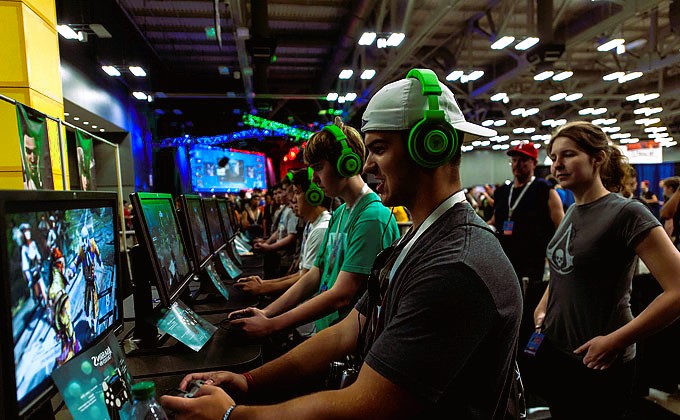
In recent years, there has been a noticeable intersection between gaming culture and tourism, giving rise to a new trend known as traveler-gaming. This phenomenon involves individuals who incorporate gaming activities into their travel experiences, seeking out destinations, events, and experiences that cater to their gaming interests. As technology advances and gaming becomes increasingly mainstream, the synergy between gaming culture and tourism is only expected to grow, influencing the way people explore the world. This article explores the emerging trends among traveler-gamers and examines the impact they have on both the gaming industry and the tourism sector.
The Rise of Traveler-Gamers:
The concept of traveler-gaming has gained traction thanks to several factors. Firstly, the globalization of gaming culture has created a sense of community among gamers worldwide. Online multiplayer games, social media platforms, and gaming conventions have connected individuals from different corners of the globe, fostering friendships and shared interests. As a result, many gamers are now eager to explore destinations where they can meet like-minded individuals and participate in gaming-related activities.
Secondly, the increasing popularity of esports has contributed to the rise of traveler-gamers. Esports events, where professional gamers compete in front of live audiences, attract thousands of spectators from around the world. These events often take place in major cities and serve as hubs for gaming enthusiasts. Traveler-gamers frequently plan trips around these events, combining the thrill of competition with the excitement of travel.
Gaming-Inspired Tourism Destinations:
As traveler-gaming gains momentum, destinations are starting to capitalize on the trend by incorporating gaming-inspired attractions and experiences. For example, Japan, often regarded as a gaming mecca, boasts numerous arcades, themed cafes, and gaming museums that appeal to both local gamers and international visitors. Similarly, South Korea’s bustling gaming districts, such as Seoul’s Gangnam and Busan’s Seomyeon, attract tourists with their vibrant esports culture and gaming amenities.
Furthermore, certain cities have embraced their status as gaming capitals and actively promote themselves as must-visit destinations for gamer travelers. Seattle, home to major gaming companies like Microsoft and Valve Corporation, hosts events such as PAX West and The International, drawing gaming enthusiasts from far and wide. Similarly, Los Angeles, with its annual Electronic Entertainment Expo (E3), has become a pilgrimage site for gamers eager to experience the latest innovations in the industry.
The Impact on Tourism and Gaming Industries:

The emergence of traveler-gamers has significant implications for both the tourism and gaming sectors. On the one hand, tourism destinations that cater to gamer travelers stand to benefit economically from increased visitor numbers and spending. Hotels, restaurants, and local businesses can capitalize on the influx of gamers by offering gaming-themed accommodations, dining experiences, and merchandise. Did you like the article? Read also about Real-Life Quests.
On the other hand, the gaming industry can leverage the growing interest in traveler-gaming to expand its reach and diversify revenue streams. Game developers and publishers may collaborate with tourism boards to create gaming-inspired experiences tied to popular game franchises. For example, a city tour designed around locations featured in a beloved video game could attract fans eager to explore the virtual world in real life.
Moreover, the rise of traveler-gaming presents opportunities for brands to engage with consumers in innovative ways. Travel agencies, airlines, and hospitality companies can partner with gaming influencers to promote gaming-themed travel packages and experiences. By tapping into the passion and enthusiasm of gamer travelers, businesses can enhance their marketing efforts and appeal to a niche yet influential demographic.
Conclusion:
In conclusion, the convergence of gaming culture and tourism has given rise to a new trend known as traveler-gaming, where individuals seek out destinations and experiences that cater to their gaming interests. As the global gaming community continues to grow and evolve, so too will the opportunities for traveler-gamers to explore the world in exciting and unconventional ways. By embracing this trend, both the tourism and gaming industries can unlock new avenues for growth and innovation.
For further information on gaming culture and standardization, visit Fandom.
